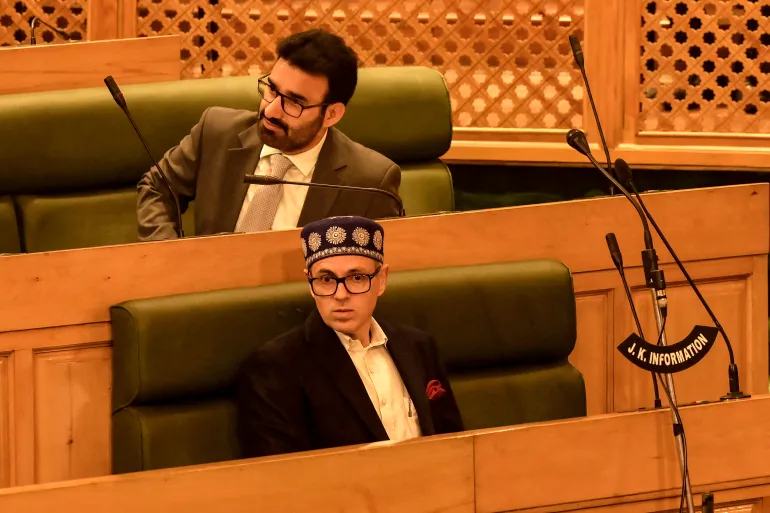The legislative assembly in Indian-administered Kashmir has passed a resolution demanding the restoration of special status and partial autonomy.
The resolution, passed on Wednesday, comes a month after the Jammu and Kashmir National Conference (NC) won a regional election last month with promises to return self-rule to the disputed Muslim-majority territory.
Prime Minister Narendra Modi’s Hindu nationalist Bharatiya Janata Party (BJP) government cancelled Jammu and Kashmir’s special status in 2019, and the territory has been ruled by a governor appointed by New Delhi since.
“This assembly calls upon the government of India to initiate dialogue with elected representatives of people of Jammu and Kashmir for restoration of special status,” the resolution, passed by a majority vote in the 90-member assembly, read.
It added that it “reaffirms the importance of the special and constitutional guarantees, which safeguarded the identity, culture and rights of the people of Jammu and Kashmir”.
Also See: Elections In IIOJK Cannot Resolve Kashmir Dispute: Mirwaiz
The 29 members of BJP in the legislative body opposed the non-binding resolution, which requires approval from the federally appointed governor.
They said the resolution carried no weight as the parliament had scrapped the special status, and they shouted Hindu nationalist slogans.
Kashmir has been divided between nuclear-armed rivals India and Pakistan since their partition at the end of British rule in 1947, and both countries claim full ownership of the territory.
Tens of thousands of civilians, soldiers and rebels have been killed in the territory during decades of unrest that shows no sign of stopping.
In one of the latest spates of violence, gunmen killed seven people working on a strategic tunnel project near the resort town of Sonamarg last month.
Police claim that rebels fighting against Indian rule in the territory were responsible for the “terror attack”.
Many Kashmiris support the goal of uniting the territory, but India has branded such aspirations “Pakistan-sponsored terrorism”.
This news is sourced from Aljazeera and is intended for informational purposes only.






